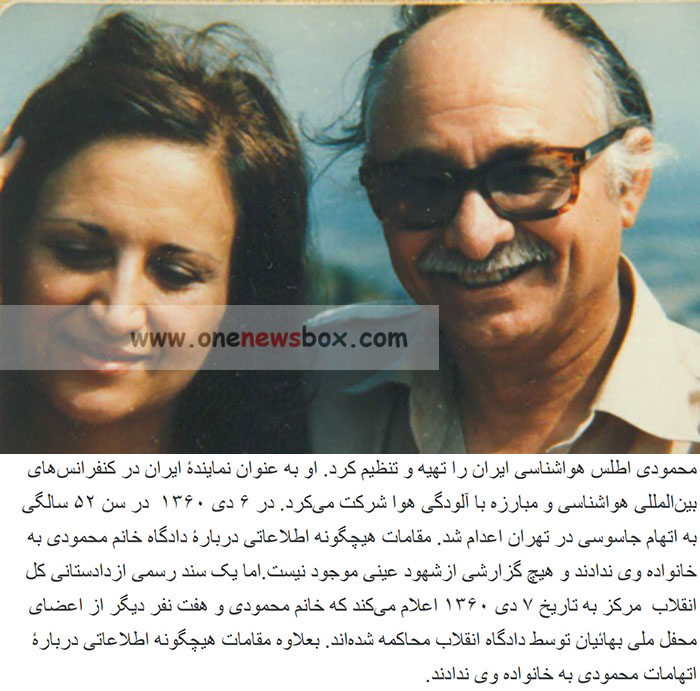Jinous also prepared and edited Iran’s first meteorological atlas and represented the country in international conferences, addressing issues such as air pollution and climate. Her work was groundbreaking and highlighted her dedication to scientific progress and environmental stewardship.
The Tragic Fate of Jinous Nemat Mahmoudi
On January 6, 1982 (1360 in the Persian calendar), Jinous was executed on charges of espionage. Her trial and execution occurred with little transparency, and no official explanation was given to her family. The Central Revolutionary Prosecutor’s Office issued a brief document stating that Jinous and seven other Baha’i members had been tried and sentenced by the Revolutionary Court. However, no details about the accusations or evidence against her were made available to her family.
The execution of Jinous Mahmoudi marked a painful episode in Iranian history, especially for the Baha’i community. Her contributions to meteorology and her service to her country were overshadowed by her unjust treatment and the tragic end to her life.
The Baha’i faith originated in Persia in the 19th century, advocating unity, peace, and the equality of all people. Despite its message of inclusivity, the Baha’i faith has faced significant persecution in Iran, both historically and in recent times. The Baha’i community in Iran has consistently experienced discrimination, exclusion, and violence, especially following the 1979 Iranian Revolution.
Governmental Restrictions and Community Resilience
The Iranian government does not recognize the Baha’i faith as a legitimate religion and considers Baha’is as heretics. As a result, members of the Baha’i community are denied rights and freedoms granted to other religious groups in Iran. Baha’is are often excluded from higher education and public sector employment, and their places of worship, homes, and cemeteries are regularly desecrated or destroyed. This climate of oppression has forced the Baha’i community to practice their faith discreetly and establish underground educational systems to provide their youth with learning opportunities.
Despite these challenges, the Baha’i community remains res

